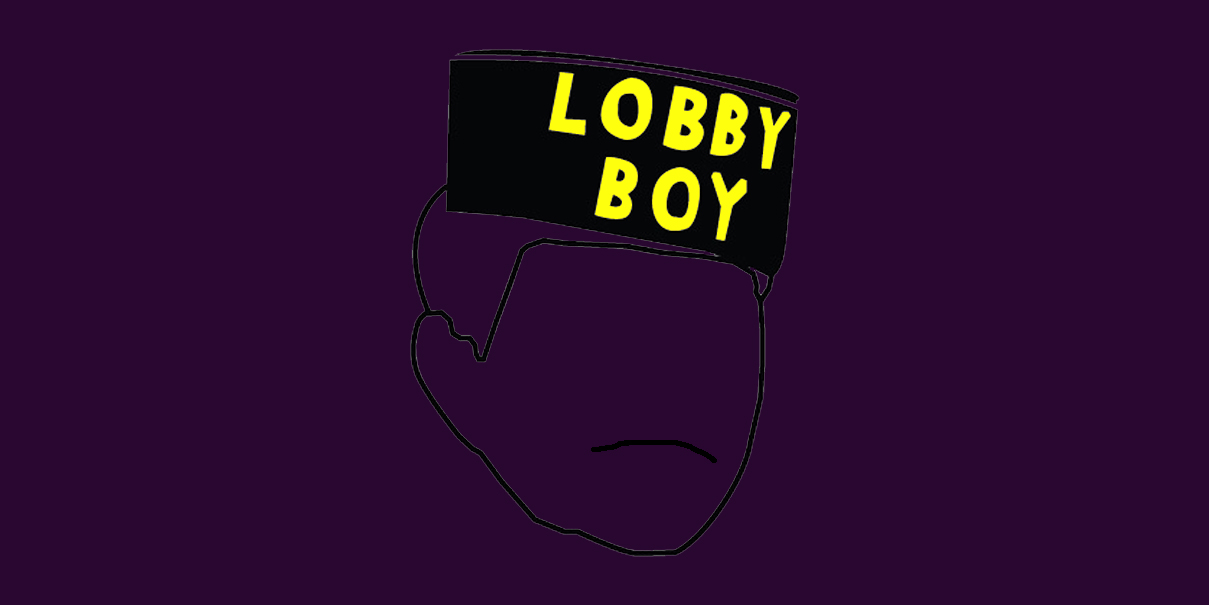Director Wes Anderson (“Fantastic Mr. Fox” and “Moonrise Kingdom”) once again shows us his keen artistic skill in “The Grand Budapest Hotel.”
Graphic by: Ryan Arnold
__________________________________________________
Wes Anderson currently is one of Hollywood’s most creative directors and shows us his true imagination in “The Grand Budapest Hotel.”
He is best known for his visual and narrative style and digs even deeper in this film.
This is probably the most oddball film he’s put onto the big screen.
This imaginative script is inspired from Viennese writer Stefan Zweig, which is co-written by Anderson and Hugo Guinness.
Take a journey with Gustave H. (Ralph Fiennes) and Zero Moustafa (Tony Revolori) through their grand adventure of a dissolved past, hotel wars, murder, theft and most importantly, friendship.
Anderson first introduces his film with an older Zero (F. Murray Abraham), who tells his adventures as a lobby boy to a young writer (Jude Law). Law will later write the book, “The Grand Budapest Hotel.”
Now, back to Gustave. Fiennes gives us one his best performances to date as the quirky yet witty hotel concierge, Monsieur Gustave H.
His manners are not always a match with his morals. Gustave believes he’s the one to help and even pleasure his guests of both sexes. In Gustave’s own words, “I go to bed with all my friends.”
Later, Gustave takes Zero under his wing and he becomes the new lobby boy. Newcomer Revolori is brilliant as the courageous and loyal lobby boy.
Zero falls in love with Agatha (Saoirse Ronan) who works in Mendl’s bakery. Here she makes her most famous dessert Courtesan au chocolat. This pastry becomes important later on in the film.
The plot thickens when Madame Céline Villeneuve Desgoffe (Tina Swinton), who has a huge crush on Gustave, is found murdered at her home.
Gustave and Zero go to her funeral to show respect but Gustave is also busy trying to make out what type of cream the morgue used on her.
When Madame D gives most of her prized possessions, including “Boy with Apple” painting, to Gustave, her ruthless son, Dmitri (Adrien Brody), has a cow.
Gustave and Zero steal the painting and are framed for the murder of Madame D. Now, they are on the run from the cops, led by Inspector Henckels (Edward Norton).
Dmitri’s henchman Jopling (Willem Dafoe) also goes after Gustave and Zero. Dafoe is killer-funny … literally. He throws cats out the window for fun.
The film takes a dramatic turn to a crime caper, including a hilarious prison escape.
Throughout the film a tumble of actors also pop out including a humorous Bill Murray, a confused Owen Wilson, a mustached happy Jason Schwartzman, a cat-less/fingerless Jeff Goldblum, and a tattooed Harvey Keitel.
Anderson creates more than a movie; he creates his own past and brings it to life through the eyes of these characters. By doing this he also explores deep emotional ideas.
He is more than a filmmaker. He is an artist and knows how to craft his movies. Anderson creates his own wonderland and throws us into the middle of it.
Through all of Gustave and Zero’s mischief and quirkiness we find a heart-warming story. In this film we see love, murder, heartbreak and, most importantly, friendship.
The most important message from this film is the friendship of Gustave and Zero banding together to prove their innocence and also have an adventure at the same time.
Anderson shows us his keen artistic skill through “The Grand Budapest Hotel” and gives the dying past life. He does this through fast camera movements, a deeply enriched plot, elaborate/colorful costume designs and charming characters.
Through these quirky characters we find a grand adventure waiting to unfold. That’s why “The Grand Budapest Hotel” receives four and a half stars out of five.
* * * * ½
